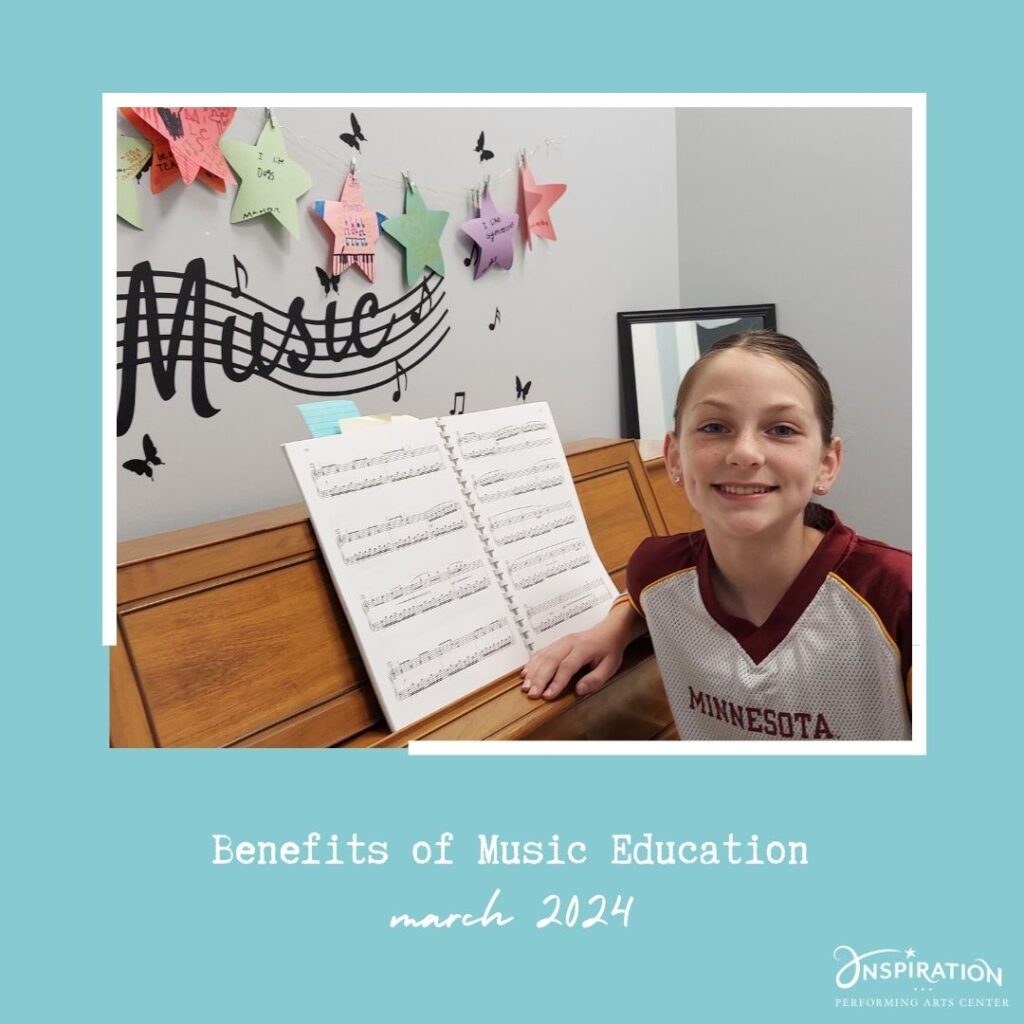
Music, often referred to as the universal language, has the incredible ability to shape and enhance aspects of our lives. At IPAC, our mission is to offer numerous avenues for children to flourish through music education and performance. We firmly believe that when it comes to childhood development, the benefits of music education are both profound and far-reaching. From cognitive and emotional development to fostering confidence growth, music education plays a pivotal role in shaping well-rounded individuals.
1. Cognitive Development:
One of the primary benefits of music education in childhood is the positive impact on cognitive development. Numerous studies have shown that children who engage in music education demonstrate enhanced cognitive skills, including improved memory, attention, and problem-solving abilities. Learning to play an instrument and understanding musical concepts stimulates various parts of the brain, fostering intellectual growth and academic achievement.
The positive correlation between music education and academic performance is well-established, with students involved in music programs often outperforming their peers in standardized tests. The discipline and dedication cultivated through musical practice contribute to mathematical and linguistic proficiency and to improved focus and time management skills—essential for academic success. We strive to make this learning experience enjoyable by allowing students to choose their favorite songs, creating an engaging environment that complements their progression through level-appropriate skills and concepts.
2. Emotional Well-Being:
Music has the power to evoke emotions and connect individuals on a deep, emotional level. Through our program, children not only learn to express themselves creatively but also develop emotional intelligence. Learning to play an instrument or participating in voice lessons provides a constructive outlet for emotional expression, helping children in coping with stress and building resilience.
3. Boost in Confidence and Self-Esteem
Mastering a musical instrument or achieving success in a performance can significantly boost a child’s confidence and self-esteem. The sense of accomplishment gained from overcoming challenges in learning new skills translates into increased self-belief, positively influencing other areas of a child’s life. Our students experience this growth firsthand when, after months of dedicated practice, they perform for friends and family, showcasing their skills and hard work. Additionally, our music students are also invited to give back to their community by playing in optional community outreach events which gives them an opportunity to connect with others as they share their talents. These give back opportunities help boost self-esteem by connecting our students with their community and giving them a sense of connection and purpose.
4. Cultural Appreciation
Music is an important reflection of culture and history. Exposure to a variety of musical genres during childhood broadens a child’s cultural understanding and appreciation. Learning about different musical traditions fosters cultural awareness and nurtures a more inclusive worldview.
Conclusion:
Music education in childhood goes beyond creating skilled musicians; it shapes well-rounded individuals with enhanced cognitive abilities, emotional intelligence, and increased self-esteem. IPAC’s music department, comprising five teachers with advanced degrees, is happy to offerseveral opportunities for music education, including piano, voice, ukulele, and guitar.
